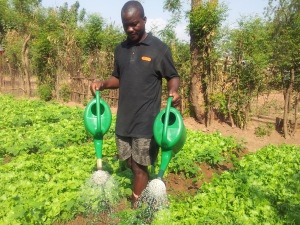Dr Felix Akpabey, an officer in-charge of the Northern Regional Water Research Institute (WRI) of the Council for Scientific and Industrial Research (CSIR), at the weekend said about fifty-two per cent of urban vegetable growers in the Northern Region depended on polluted water due to scarcity.
“As a matter of fact, waste water is not fit for unrestricted irrigation, which according to international standards poses risk on agricultural workers, crop handlers and consumers,” he stated.
Dr Akpabey said this during a review seminar organised by CSIR-WRI in Tamale at the weekend.
The one-day internal review seminar was aimed at sensitising CSIR-WRI clientele and the public, especially, the scientific community on the activities of the Institute in the Northern region.
It was also to assess the general ground water potential and availability of the various types in the Northern Region and to develop an updated composite of hydro-geological map of the Region.
He noted that the use of plant species for cleaning polluted soils and water known as phytoremediation, has gained increasing attention since the last decade, as an emerging cheaper technology.
Dr Akpabey said contaminant element concentrations of waste water samples from three sources in the Tamale Metropolis were measured before and after treatment.
He said there was a scientific way of testing the efficacy of duckweed species to phytoremediate waste water for use in urban agriculture.
Dr Akpabey stated that duckweeds were able to reduce about 73.16 per cent of bacteria, and was very effective in reducing between 60 and 100 per cent contamination, which makes the water less harmful in crop production.
He said the duckweeds also reduce the level of heavy metal concentrations by 100 per cent, which could be used to phytoremediate wastewater for urban agriculture.
Mr Gerald Quarcoo, a Research Scientist at CSIR-WRI, explained that water quality in relation to fish production can be described to have physical, chemical and biological properties that affect the survival, growth, reproduction and fitness of fish for human consumption.
He said growth of the aquaculture industry therefore needed good water quality to maintain viable aquaculture production in the country.
Mr Michael Kumi, a consultant with the Environmental Chemistry Division of CSIR-WRI, said quality water implications of any proposed aquaculture activity should be addressed, especially, where there was a risk of discharge from farms, or where operations would be conducted in cages, shallow or confined in water bodies.
Business News of Tuesday, 26 August 2014
Source: GNA
Vegetable farmers in N/R depend on waste-water
Entertainment












